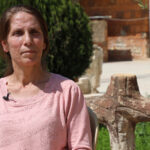Category: Mutual Aid
Mutual Aid is a volunteer-led initiative / project where groups of people in a particular area, or from a particular community join together to support one another, meeting vital community needs without the help of state institutions or NGOs. It is, by definition, a horizontal mode of organising, in which all individuals are equally powerful. Mutual Aid, in simpler words, is co-operation for the common good.
Mutual Aid – in all of its forms and varieties – is a universal practice, rather than a catch-all term, or definition. It is an evolutionary factor as old as life on Earth.
Read more about the history and current practices of Mutual Aid around the world today at our sister project: www.mutualaid.coop
The articles below are about Mutual Aid practices in both North and East Syria (Rojava / West Kurdistan) and southeastern Turkey / North Kurdistan (Bakur). You can also search for article on Mutual Aid according to region.
———————————————————
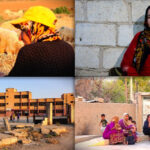
Women build social solidarity in Zirgan
Women have rebuilt their life in solidarity with each other in the village of Zirgan (Abu Rasin), located in the Jazira Canton of North and East Syria, despite the ongoing Turkish attacks.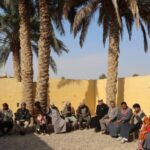
Fez’a culture in Deir ez-Zor reflects a model of communal living
The Fez’a tradition in Deir ez-Zor builds unity and strengthens social solidarity.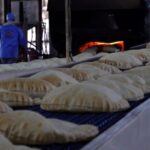
36 families in Raqqa found cooperative bakery
36 families came together in the canton of Raqqa to form a cooperative and launched the 'Life Bakery Cooperative', with a daily production capacity of 8,750 loaves of bread.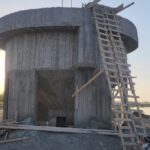
Village in Deir ez-Zor builds community-funded water filtration station
In the village of Zgheir Shamieh in Deir ez-Zor western countryside, eastern Syria, residents have taken matters into their own hands, launching a fully community-funded project to build a drinking water filtration station after more than a decade without safe water.
Collective art as a form of resistance and hope
Collective creation offers resistance and hope by prioritising mutual understanding over self-expression.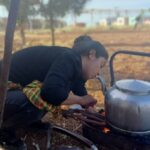
Jinwar – A women’s village full of change and hope in North and East Syria
Jinwar is home to many different women that have decided to join the community for a variety of different reasons. Something that unites all of them is their search for a free life in communality and the wish to learn, to strengthen and develop as women. Some of them have lost their husbands in the war, or others have freed themselves from domestic violence or forced marriage. There are also Yazidi women who have begun a new life here after they were liberated from the enslavement of ISIS.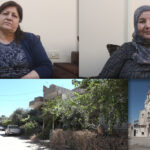
Vîtariya Commune in Dêrik strengthens solidarity
The Vîtariya Commune built in Dêrik (Al-Malikiyah) aims to strengthen solidarity among different ethnic identities in the city.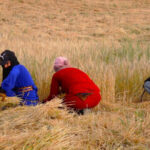
Harvest of barley starts on foothills of Mount Kizwanan
Women living in the village of Fiwêda, located on the foothills of Mount Kizwanan have already started harvesting barley.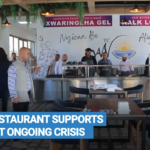
Van Municipality opens budget eatery to support residents
Van (Wan) Metropolitan Municipality has opened a new low-cost restaurant, Kent Lokantası, in İpekyolu (Rêya Armûşê) district's Beşyol Park. The initiative aims to support residents struggling with the ongoing economic crisis in Turkey.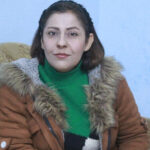
Solidarity with disabilities in Aleppo
Nûdem, an organization established to provide care and support to people with disabilities, has started carrying out activities in Aleppo’s Sheikh Maqsoud and Ashrafieh neighborhoods.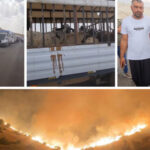
Shepherds give fire victims 350 sheep in an act of solidarity
Kurdish Shepherds started a solidarity campaign to give sheep to the villagers affected by the fire between Diyarbakır (Amed) and Mardin (Mêrdîn) in which 15 people lost their lives. They have already distributed 350 sheep and goats to the villagers.